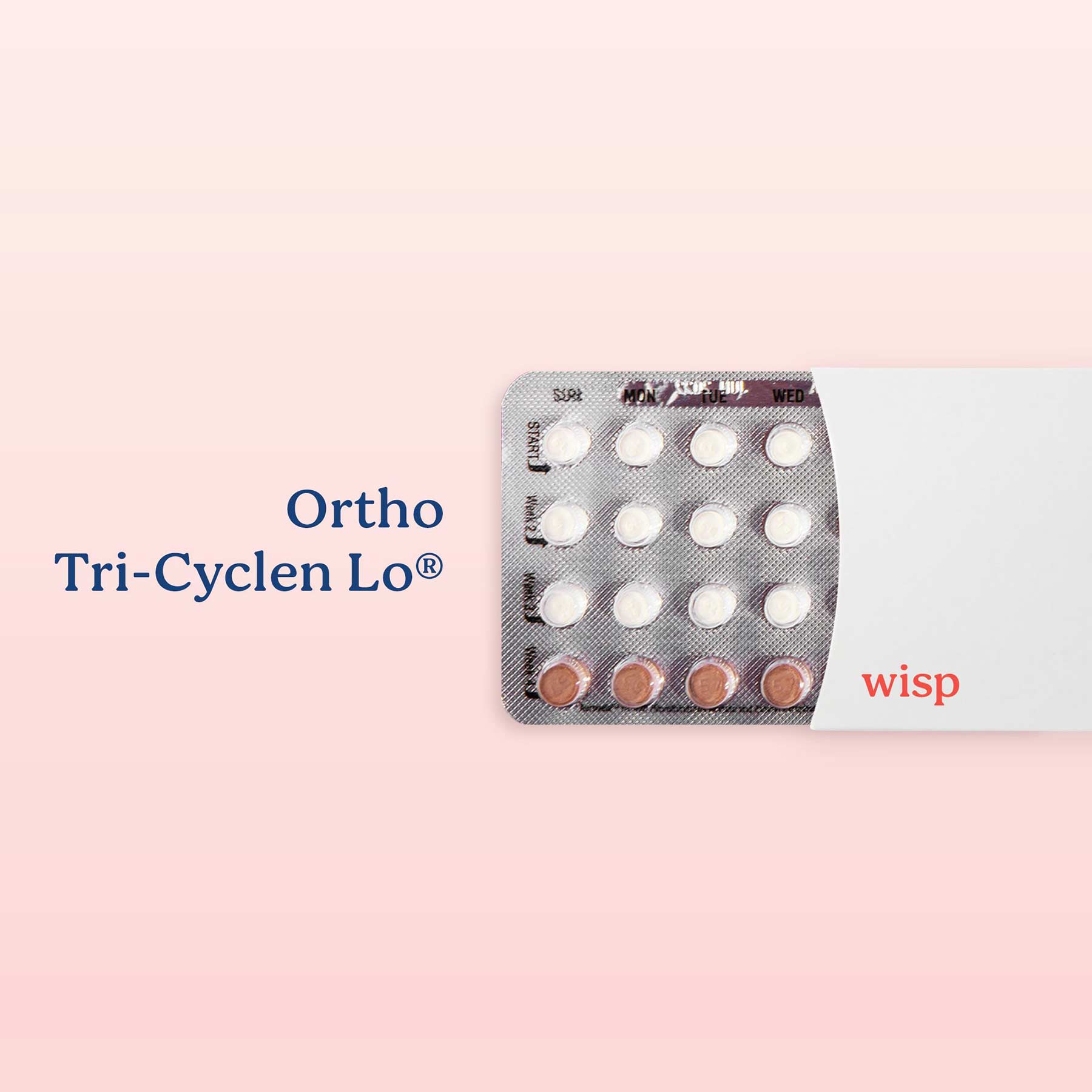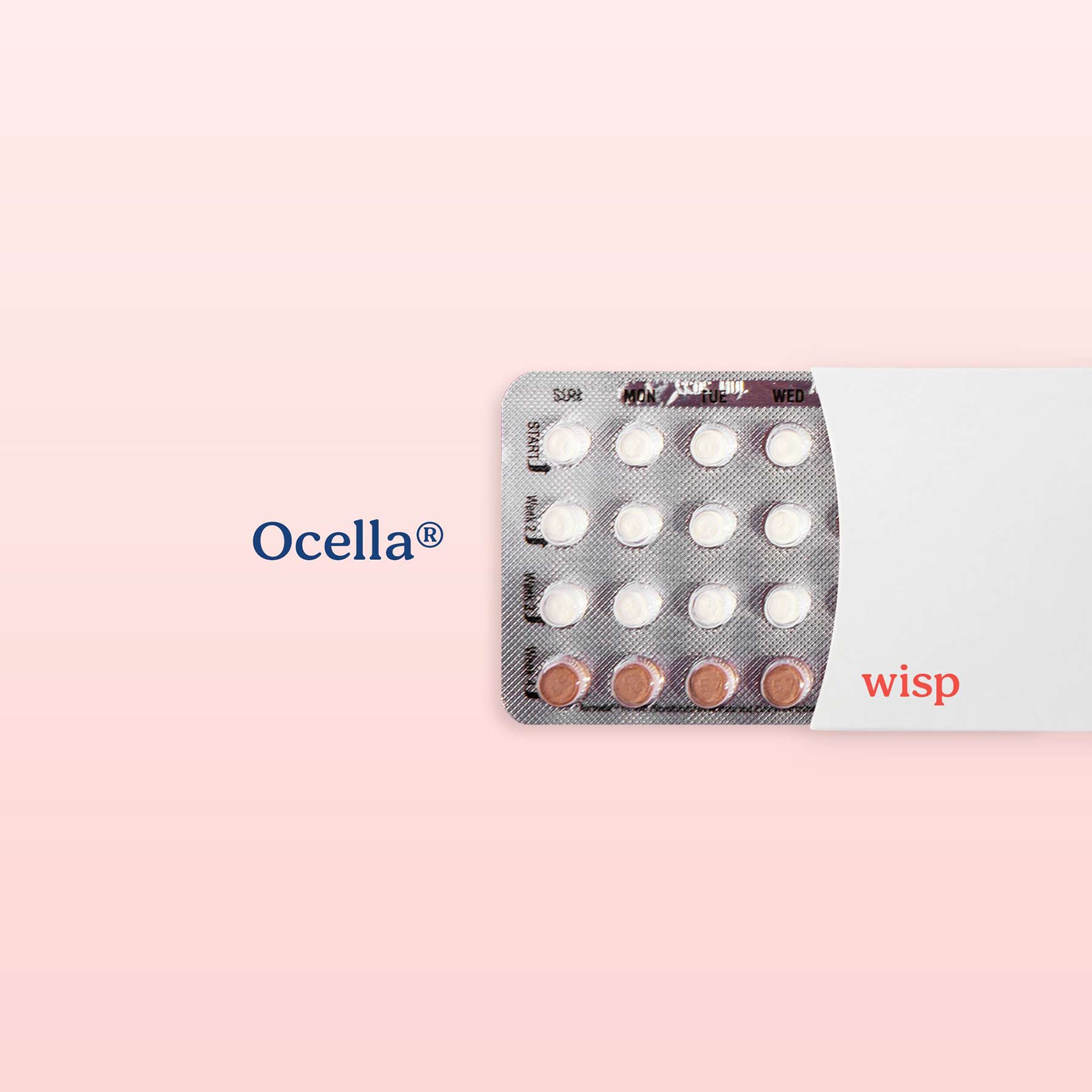
How to Decide Which Birth
Control is Right for You
By Olivia Ware
December 2, 2020
What do birth control and salad have in common?
Though it sounds like the setup of a bad joke, indulge me for a moment. Do you prefer romaine, kale, iceberg, spinach, arugula (no way), or mixed greens? Or would you rather ditch the greenery altogether and go for grain? Hello, quinoa, farro, and barley!
Maybe the only salad touching your plate is a fruit, potato, or pasta salad. And let’s not bring toppings into this discussion! Do you see where I am going with this? Options are great, but sometimes having too many to choose from is overwhelming! The same principle applies when choosing the best birth control.
What Are Your Options for Birth Control?
There is so much to consider when deciding on birth control. To make matters more confusing, birth control myths abound! Finding out what works for you may take a little research and maybe some trial and error. Before diving into a few questions to consider when shopping around for birth control, let’s review some different options:
Oral Contraceptives: The birth control pill is the oldest “modern form” of birth control and continues to be a very popular method. There are two types of birth control pills—birth control pills containing a combination of hormones (progestin and estrogen) or progestin-only pills. Of these two main categories, there are several different variations of both combination and progestin-only birth control pills available on the market suited to particular needs.
IUD: An IUD (Intrauterine Device) is a small t-shaped device inserted into the uterus. IUDs come in two forms—hormonal IUDs and non-hormonal copper IUDs. The benefit of an IUD is that they are long-lasting (ranging from 3-10 years depending on the type). They are also relatively low maintenance. Once the IUD is inserted by a medical professional, you don’t have to worry about it again until it is time to remove it.
Barrier Methods: As the name suggests, barrier method birth control works by creating a barrier, preventing sperm from fertilizing the egg. Think condoms, sponges, diaphragms, etc.
Barrier methods are statistically less effective for preventing pregnancy than hormonal birth control (and less effective than the non-hormonal copper IUD). However, the benefit of barrier methods is that they are the only form of birth control (apart from abstinence) that protects against STI transmission. Even when using an alternate form of birth control, adding a barrier method is always a good idea to prevent STIs from easy jumping from person to person.
Other: Hormone-based birth control comes in many forms other than the pill—patch, implant, ring, shot, etc. These options may be good for anyone who may have trouble remembering to take a pill at the same time every single day.
There are a few more birth control methods that fall under the category of other—abstinence, the rhythm method, and the pull-out method. These are all non-hormonal methods. While abstinence is the only 100% effective form of birth control in preventing both pregnancy and STI transmission, it is rarely practical. Conversely, the rhythm method and the pull-out method are statistically the least effective methods of birth control due to their reliance on human calculation. Relying on the rhythm method or the pull-out method for birth control is not advisable. It is way too easy to screw up.
With so many choices, how do you know which birth control to get? Let’s consider a few key questions to ask yourself (or seek advice from a medical professional) to determine what kind of birth control is best suited to your needs.
What is the Difference Between Hormonal and Non-hormonal Birth Control?
If all the different options listed above still feels overwhelming, another way to think about birth control is to divide it into two categories—hormonal and non-hormonal.
Hormonal birth control uses varying levels of hormones (either estrogen and progestin or just progestin) to suppress ovulation and prevent pregnancy. Hormonal birth control can be useful in minimizing any side effects of your menstrual cycle and treating acne. Types of hormonal birth control include:
- Pill
- Patch
- Shot
- Ring
- IUD
- Implant
Non-hormonal birth control does not alter the hormonal chemistry of your body. If you are a smoker (or nicotine user in any form), non-hormonal birth control is your best option:
- Copper IUD
- Condoms
- Diaphragms
- Sponges
- Cervical Caps
- Spermicide
- Abstinence
- The “Pull Out” Method
- The Rhythm Method
Considering hormones (or lack thereof) is a good place to start, but many other questions arise when searching for the right birth control. Let’s ask a few of them.
Which birth control has the least side effects?
Side effects of hormonal birth control are rare, and typically dissipate within the first few months—and are entirely dependent on the individual. However, if you are someone who is experiencing mood swings, prolonged weight gain (or loss), or any other negative side effect, you might consider switching to non-hormonal birth control. Before you write off hormonal birth control forever, remember that there are many different combinations on the market and maybe you would be better served by a birth control with lower levels of hormones or one that uses progestin-only.
What is your reason for using birth control?
Preventing pregnancy, please! If this is your only criteria, then you are in luck. This is what birth control was made for after all! All options remain. So much for narrowing it down.
If preventing pregnancy isn’t your main priority—maybe it’s an added perk or maybe it doesn’t apply to you at all—there are plenty of other benefits of using birth control. Are you looking to gain some regularity in your cycle, lighten your period or skip it altogether, lessen symptoms of PMS or PMDD, reduce the risk of ovarian cysts, or treat acne? If any or all of these apply, you are likely in need of hormonal birth control.
How long do you plan to use birth control?
Answering this question can quickly provide guidance. If having a kid feels light-years away, or not even a possibility, then maybe you should consider an IUD. A hormonal IUD can last 3-5 years while a copper IUD can provide peace of mind and protection against pregnancy for up to a decade!
If you are looking to have kids in the next couple of months or years (just not quite yet) consider a hormonal form of birth control whether it be pill, patch, implant, ring, or shot. Keep in mind that it may take more time to regain regular ovulation after stopping certain methods than others.
How often do you want to deal with birth control?
If you thrive in routine, then a daily pill may be right for you. Swallowing that little pill at the same time every day along with any fear of pregnancy can be immensely gratifying. Checking something so simple, yet powerful off the to-do list—you are unstoppable!
However, if maintaining that level of consistency feels like a headache, consider other options! The patch, shot, or an IUD all offer longer periods of effectiveness without having to constantly watch the clock. If you are the type of person who likes to do something once and forget about it for several years, then an IUD is your match.
Which birth control is the most cost-effective?
While cost should never be the determining factor when choosing birth control, it is an unfortunate reality. Still, it is worth remembering that the cost of having and caring for a child will far outweigh the cost of using any method of birth control.
We Americans do not have a system of healthcare that provides equitable access. Thus, the answer to this question of cost-effectiveness can depend on several factors. Are you insured? Do you live in a state with access to low-cost reproductive health services?
Getting an IUD or another form of birth control that requires medical intervention may be cost-prohibitive without insurance. However, don’t be immediately discouraged. There are programs available. Research your state laws as well as sliding-scale reproductive health clinics near you. Furthermore, if you are a college student, you may be able to receive birth control for free (including an IUD) from your campus health center.
Even if you are uninsured and live in a rural area without access to medical care, low-cost birth control is now available online! No matter your circumstances, there are options available.
Figured out what birth control is right for you?
It's is ok if you are still undecided. Remember that research is your friend. Check your options for online birth control. But the best teacher of all? Experience. Ultimately, you know if something is working (or not working) for you. Don’t be afraid to try something new. Just be sure to give your body the appropriate amount of time to adjust to a new medication.
Next time you are ordering a salad, think of birth control. Kidding, but do remember that nobody else knows your needs better than you! So order what you want—that is the beauty of choice.
Get Birth Control Medication Online

Levonorgestrel (Generic PLAN B)
Starting at $12.50
Take Levonorgestrel as soon as possible but within 72 hours (3 days) of unprotected intercourse or contraceptive failure. Delivery only - order ahead of time!

Ortho Tri-Cyclen Lo® Birth Control (generic)
Starting at $15
Similar to: Tri-Lo-Estarylla, Tri-Lo-Marzia, Tri-Lo-Mili, Tri-Lo-Sprintec, Tri-VyLibra Lo and TriNessa Lo

Vaginal Birth Control Ring (Generic NuvaRing®)
Starting at $22
The contraceptive ring (NuvaRing®) protects you from pregnancy without a daily pill.



